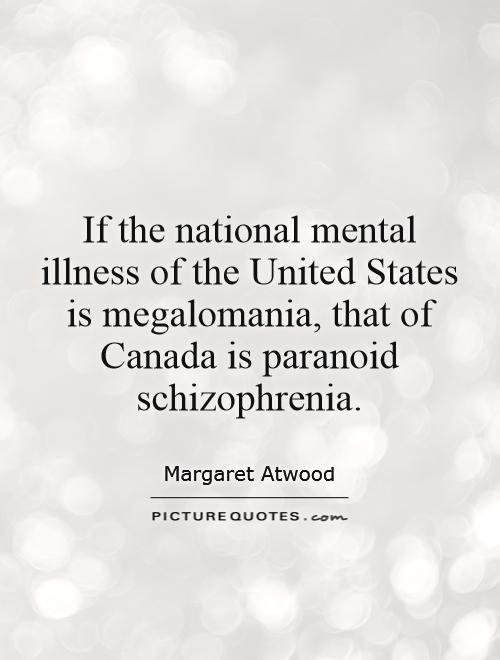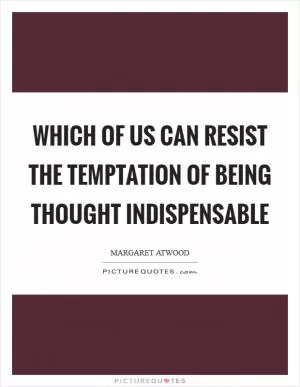If the national mental illness of the United States is megalomania, that of Canada is paranoid schizophrenia

If the national mental illness of the United States is megalomania, that of Canada is paranoid schizophrenia
Margaret Atwood, one of Canada's most celebrated authors, is known for her insightful and often dark portrayals of society. In her work, she often delves into themes of power, control, and the human psyche. It is no surprise then that the quote "If the national mental illness of the United States is megalomania, that of Canada is paranoid schizophrenia" can be applied to Atwood's own writing and the Canadian identity as a whole.Atwood's novels often explore the darker aspects of human nature, including paranoia, fear, and the struggle for control. In works such as "The Handmaid's Tale" and "Alias Grace," she delves into the ways in which power can corrupt and manipulate individuals, leading to a sense of paranoia and distrust. In these novels, characters are constantly on edge, unsure of who they can trust and what dangers lurk around every corner. This sense of paranoia is a central theme in much of Atwood's work, reflecting a broader societal fear of the unknown and the uncontrollable.
The quote also speaks to the Canadian identity as a whole. Canada is often seen as a peaceful and welcoming country, known for its multiculturalism and social welfare programs. However, beneath this facade lies a deep-seated sense of insecurity and fear. Canadians have long struggled with their identity as a nation, caught between the influences of their powerful neighbor to the south and their own desire for independence. This sense of insecurity can manifest itself in a form of paranoid schizophrenia, with Canadians constantly questioning their place in the world and their relationships with other nations.












 Friendship Quotes
Friendship Quotes Love Quotes
Love Quotes Life Quotes
Life Quotes Funny Quotes
Funny Quotes Motivational Quotes
Motivational Quotes Inspirational Quotes
Inspirational Quotes